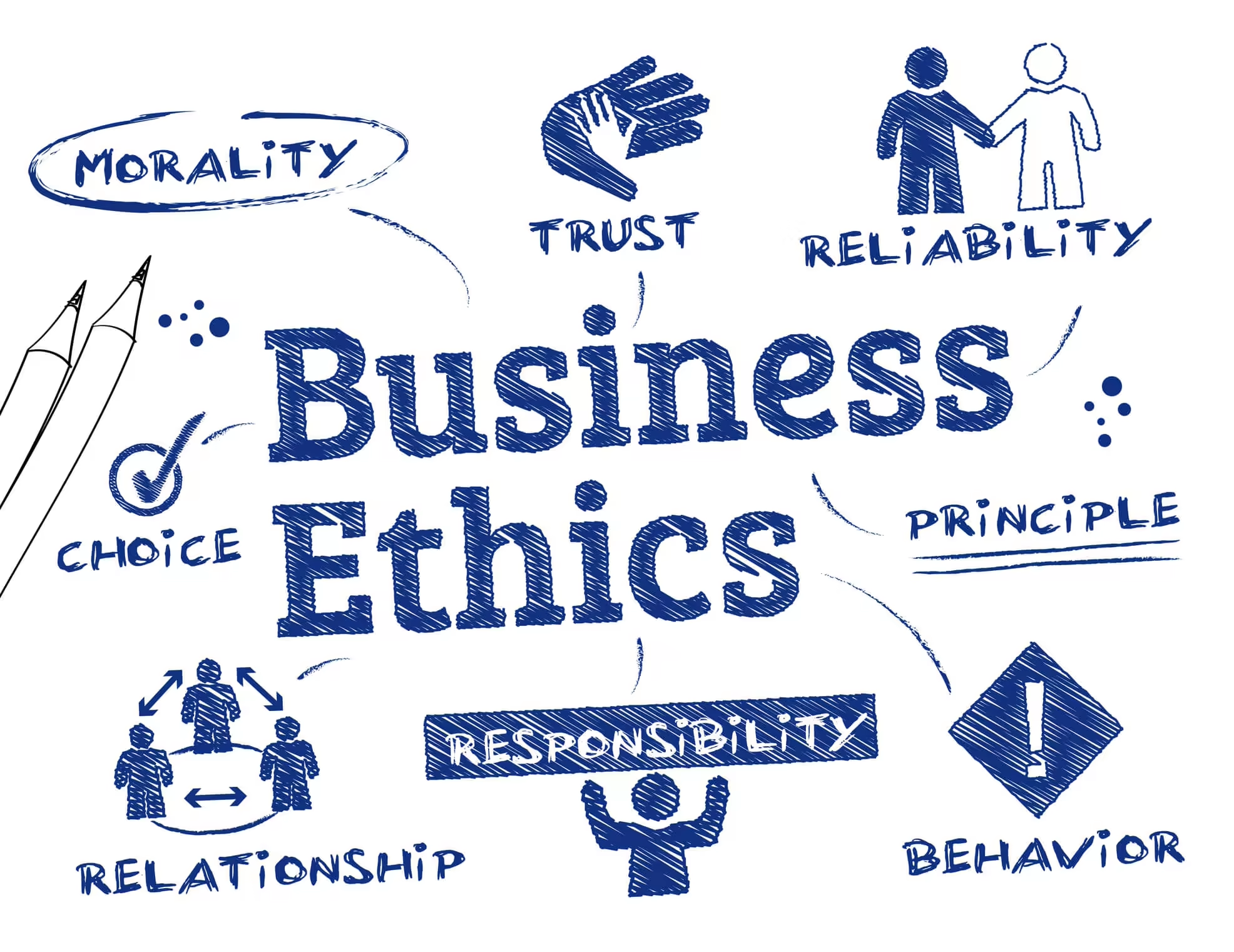Employers usually look at the past actions of an employee as an indicator of potential behavior's. Someone who has a history of immoral behavior's will have difficulty securing employment in a meaningful job, as that person may not be trusted. This also applies to the business world. Businesses with questionable moral backgrounds are usually viewed with skepticism and are unlikely to gain new customers by word of mouth, so it is unlikely that they will prosper. This is especially the case where social media allows makes customer reviews readily accessible.
When management leads an organization, workers ethically follow in those footsteps. With corporate ethics as a guiding principle, workers make better choices in less time; this improves efficiency and overall workplace morale. When employees complete work in a way that is based on honesty and integrity that benefits the entire organization.
Companies should have ethics codes to promote ethical behavior – not to enhance productivity, profits, or public relations. Still, a sound, well-administered code can benefit a company and its stakeholders in a variety of ways.
Related: The Failure of Corporate Governance and Its Impact on Business
Benefits of business ethics
The importance of business ethics reaches far beyond employee loyalty and morale or the strength of a management team bond. As with all business initiatives, the ethical operation of a company is directly related to profitability in both the short and long term. The reputation of a business in the surrounding community, other businesses, and individual investors is paramount in determining whether a company is a worthwhile investment. If a company is perceived to not operate ethically, investors are less inclined to buy stock or otherwise support its operations.
Draws more investors toward the business
If investors know that the company they work with prioritizes having high morals and will operate ethically, they will be safe in the knowledge that their money is being used responsibly. Plus, it means they can be comfortable knowing they’re not indirectly contributing to unethical practices. Strong business ethics are also an attractive quality, which means other investors are more likely to be interested in investing their money into the company, keeping its share price high and protecting it from takeover.
Provide a competitive advantage in terms of customers
When a company behaves ethically, it can attract customers to its products and services and sway them towards loyalty. This is indicated by a Unilever survey which found a third of consumers (33 percent) choose to buy from brands that are making a positive social or environmental impact.
Build Customer Loyalty
Consumers may let a company take advantage of them once, but if they believe they have been treated unfairly, such as by being overcharged, they will not be repeat customers. Having a loyal customer base is one of the keys to long-range business success, since serving an existing customer does not involve marketing costs, whereas acquiring a new one does.
Enhance a Company's Reputation
A company’s reputation for ethical behavior can help it create a more positive image in the marketplace, which can bring in new customers through word-of-mouth referrals. Conversely, a reputation for unethical dealings hurts the company’s chances to obtain new customers, particularly in this age of social networking when dissatisfied customers can quickly disseminate information about the negative experience they had.
Avoid Legal Issues
Often the management of a business may be tempted to cut corners in search of profit, such as refusing to fully comply with environmental legislation or labor laws, ignoring workers' health hazards, or using inferior materials in its goods. The penalties for being caught can be severe, including legal fees and fines or sanctions by governmental agencies. The resulting negative publicity can cause long-range damage to the company’s reputation that is even more costly than legal fees or fines. The advantages of business ethics become crystal clear in these situations since companies that maintain the highest ethical standards are very unlikely to find themselves in such situations.
Retain Good Staff
Talented individuals at all levels of an organization want to be compensated fairly for their work and dedication. They want career advancement within the organization to be based on the quality of the work they do and not on favoritism. They want to be part of a company whose management team tells them the truth about what is going on, such as when layoffs or reorganizations are being contemplated.
Keithley Tongai is a Consultant intern at Industrial Psychology Consultants (Pvt) Ltd, a business management and human resources consulting firm.
References

